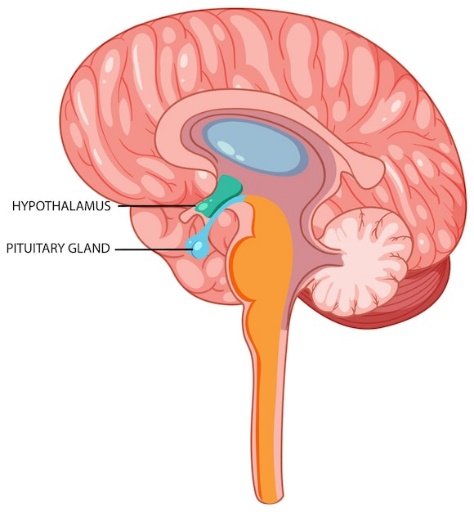


Joseph R. Anticaglia, MD
Medical Advisory Board
A short while ago, my wife and I had dinner with friends who recounted the story of their 13 year old son.
“Several weeks before we took Eric to the doctor, we noticed that he was thirsty, I mean he was drinking a lot more water than usual” Mom said. “Also, I would wake up in the morning at my usual time, open the refrigerator door to get milk for my coffee, and realized that he drank almost a full carton of orange juice in the middle of the night. At other times, he guzzled any fruit drinks that were in the fridge. At first, we didn’t think much about it. He excelled in school, and was very good, and active in sports. Everything else was fine. You know, he’s a growing teenage boy we thought.
“But things got worse. He drank water more often, and urinated more frequently. It seemed as if the toilet was constantly flushing in the middle of the night. Finally, my husband and I took him to our family doctor.” Mom continued, ‘I complained to the doctor, “Eric is always extremely thirsty, and he urinates a lot. Something’s not right.
“Eric saw a bunch of doctors, and underwent a ton of tests that included blood work, X-rays, MRI’s, and biopsies. The day finally arrived. My husband and I walked into the neurosurgeon’s office, we hung up our coats, and walked towards our son’s MRI of the brain that was displayed on a large computer screen.
“Utter disbelief! Staggering news. My husband caught me as I was falling to the ground after I heard — Eric has a brain tumor! After I regained my senses, somewhat, the neurosurgeon explained to my husband and me,”
“The condition is called Diabetes Insipidus. Eric’s tumor involves the pituitary gland, a small gland located at the base of the brain. A nearby structure in the brain called the hypothalamus produces hormones. The pituitary gland acts as a storage and release site for many hormones that regulate numerous vital functions.

“In Eric’s case, the doctor said, “the pituitary tumor has compromised the hormone vasopressin,[also called the antidiuretic hormone — ADH] which plays a pivotal role in regulating water balance. It controls how much water the kidneys reabsorb from the urine, and how much it sends back to the body. The kidneys never got the signal to reabsorb water from the urine and send it back to the body. The more Eric urinated, the more he became thirsty. The cycle for this condition keeps on repeating itself; thirsty — urinate, [thirsty more — urinate more — urinate more — thirsty more.]”
“I didn’t understand a word the doctor was saying. All I heard was, Eric has a brain tumor! Luckily, my husband was there to explain what the doctor said. But he couldn’t tell me why a brain tumor was called Diabetes something or other?”
Diabetes Insipidus, DI is a rare condition in which a person is extremely thirsty, and the body produces excessive amounts of dilute urine. Most people make 1 to 3 quarts of urine a day. However, people with diabetes insipidus can make up to 20 quarts of urine a day.
A person with DI has a problem with the antidiuretic hormone, vasopressin. Essentially, the kidneys are unable to conserve water, unable to reabsorb it, and return it the body. Vasopressin is also known as the antidiuretic hormone.(ADH)
Diabetes Insipidus is not related to Type 1, or Type 2 sugar diabetes. Unlike sugar diabetes, that is, diabetes mellitus, where the blood sugar levels are elevated, people with DI, the blood sugar levels are normal, The urine is more dilute with a low specific gravity meaning it contains more water than normal. Otherwise, the urine is normal — no sugar in the urine. It is caused by a deficiency, or resistance to the hormone, arginine vasopressin — AVP.
The two main causes of Arginine Vasopressin Disorder are:
Arginine vasopressin is produced by nerve cells in the anterior part of the brain known as the hypothalamus. Vasopressin (VP) passes from the hypothalamus to the pituitary gland where it is stored. When the amount of water in the body is too low, dehydration, the pituitary gland releases vasopressin to reduce the amount of water lost through the kidneys, and urination.
The two main symptoms of Diabetes Insipidus are:
Polydipsia — intense thirst, and
Polyuria — excessive urination.
In addition, one might experience loss of appetite, feeling tired, and trouble concentrating
The article by Hiroshi Arima et al discusses the reasons for renaming Diabetes Insipidus to avoid confusion, and misdiagnosis with Diabetes Mellitus. The two conditions are unrelated except for excessive urination(polyuria).
The term “diabetes” in “diabetes insipidus” is often mistakenly associated with high blood sugar levels, causing patient confusion. Diabetes insipidus is a completely different condition related to problems with the regulation of water balance through the hormone arginine vasopressin (AVP).
The new recommended terms are:
Support for the renaming DI has gained worldwide approval from international endocrinology organizations.
In the end, Eric’s Mom said, “We’ve been on quite a trip! Eric travelled out of state to get second opinions. He’s been examined by endocrinologists, oncologists, and neurosurgeons.. His arms have been used as a pin cushion. After brain surgery he received chemotherapy, and radiation therapy for the brain tumor.
We’re very proud of our son’s courage, fortitude and determination to fight this cancer. It made us stronger, more grateful and better parents. Oh yes, one last thing, his five year follow up showed no evidence of cancer!”
This article is intended solely as a learning experience. Please consult your physician for diagnostic and treatment options.